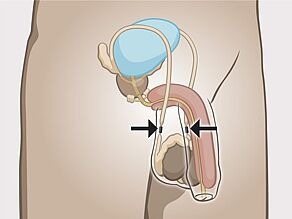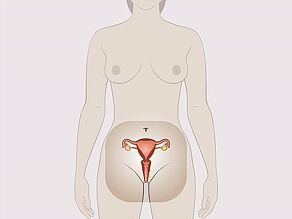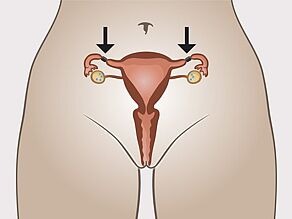Sterilization is a permanent method of contraception.
Sterilization is an operation that makes fertilization impossible. The sperm cells can no longer reach the egg cell.
It does not generally affect your health.
Both men and women can be sterilized.
Sterilization for men
After sterilization the man still has ejaculations. He produces semen without sperm cells. He can have sexual intercourse in the normal way.
The doctor blocks the sperm ducts.
Sperm cells can no longer travel along the sperm ducts to the prostate and seminal vesicles, where the semen is produced.
After 3 months, the semen no longer contains any sperm cells. Only then can you stop using other methods of contraception.
Sterilization for women
Sterilization has no effect on the cycle, ovulation or menstrual periods.
The doctor blocks the fallopian tubes.
Sperm cells can no longer reach the egg cell.
Sterilization: the operation
The operation is usually performed under local anaesthetic in men, and under general anaesthetic in women. The operation is less risky for men than for women. After the operation, you can go home immediately, unless you have had a general anaesthetic.
Sterilization does not usually affect your libido or sex life. Men and women can still have orgasms.
Sterilization is a permanent method of contraception. Reversal of sterilization is difficult and not always successful.
Sterilization is very reliable.
Protection against STIs and HIV
Sterilization does not protect against STIs or HIV. Only a condom can protect you.
















